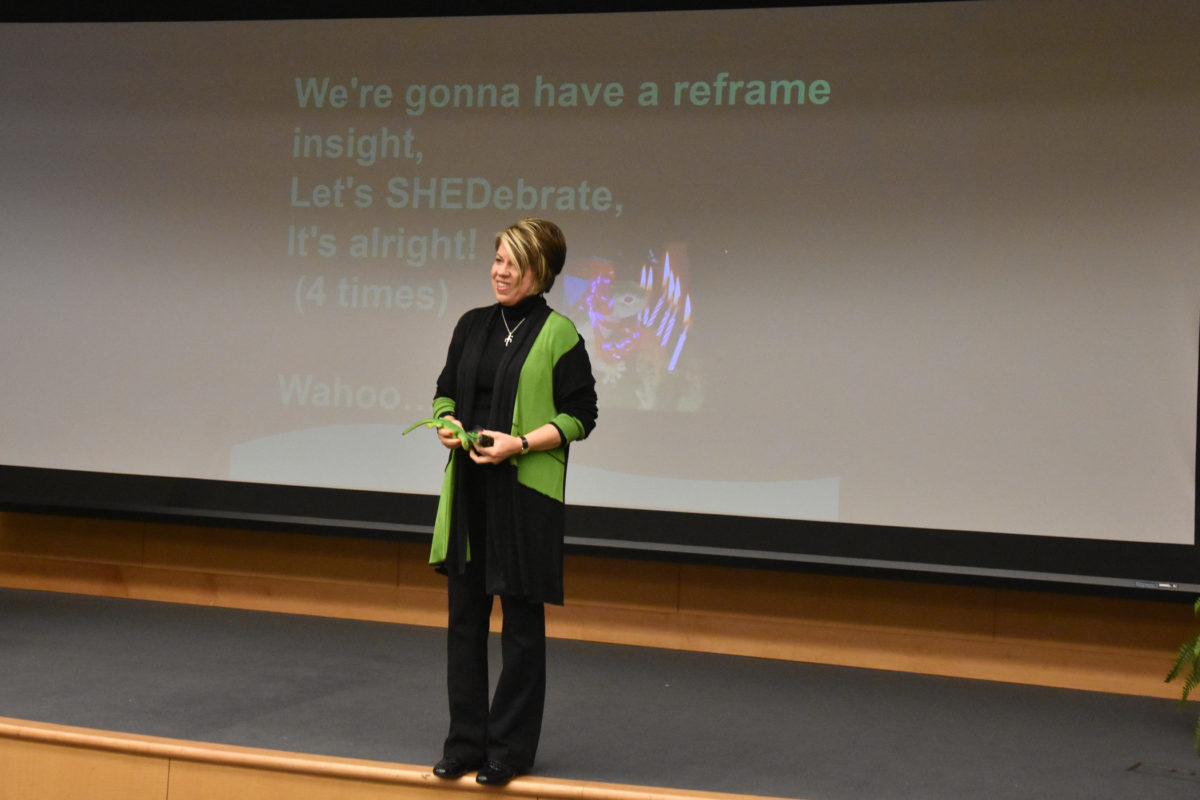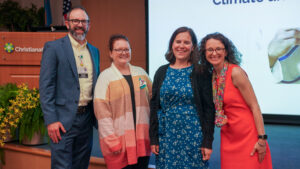Shedding is essential. Ask Lenny the Lizard.
“If a lizard doesn’t shed its skin, it dies,” said Kathy Dempsey, RN, MED, CSP. “Change is essential to survival.”
Dempsey, a former trauma nurse and a behavioral change expert, was the speaker at a Women’s History Month event presented by the Multicultural Heritage Committee on March 16 at Christiana Care’s John H. Ammon Medical Education Center. Her topic was “Shed or You’re Dead: How to Stay Alive in the Midst of Health Care Change.”
She was accompanied by Lenny, a green plastic lizard that symbolizes adapting to change. She compared a lizard’s skin to outdated thoughts, bad habits and unhealthy relationships.
“You shed the typewriter because it didn’t serve you any more,” she said. “The same concept applies to behaviors that no longer have value.”
It was a lively presentation with lots of audience participation. Attendees took a brief survey to determine their personal “shed style” in the workplace:
- Stabilizers create a stable and harmonious environment. They cooperate with others, are patient and good listeners.
- Hedgers are orderly and systematic. They provide attention to detail, accuracy and logical solutions.
- Energizers inspire others. They are positive and focus on unlimited possibilities. They are enthusiastic about change.
- Drivers create results. They are action oriented, setting goals and acting on them. They accept multiple challenges and solve problems.
Dempsey said change does not require a lengthy period of time. And it need not be frightening.
“Sometimes our worst days are our best days because we learn something,” she said.
Dempsey’s worst days began when she was diagnosed as HIV positive after treating a patient with AIDS in the Emergency Department. She lost her job, was deeply depressed and briefly considered suicide. Several months later she learned her test results were wrong.
“I had my life back at 26 years old.”
After that experience, she resolved to live in the present. She learned to focus her energy on things she can influence or control, not on things she can’t.
Dempsey outlined the five stages of change: loss, anger, discouragement, acceptance and celebration. She encourages leaders and employees to visualize that they have met their goal and celebrate their accomplishments in advance.
“Celebration accelerates shedding,” she said. “You can program your brain for success because the brain believes what you tell it.”
Andrea Stewart, HIMS supervisor, has long been interested in self-improvement. She attended the session to explore strategies for making positive changes.
“Learning new ways to look at challenges is a valuable experience,” Stewart said.
Dempsey handed out wristbands printed with the phrase: “I am allergic to negativity.” She encouraged attendees to shed complaining and embrace change.
“We get attached to our roles. We have to realize that all roles end some day,” she said. “So what are you doing today to prepare for your next role?”



